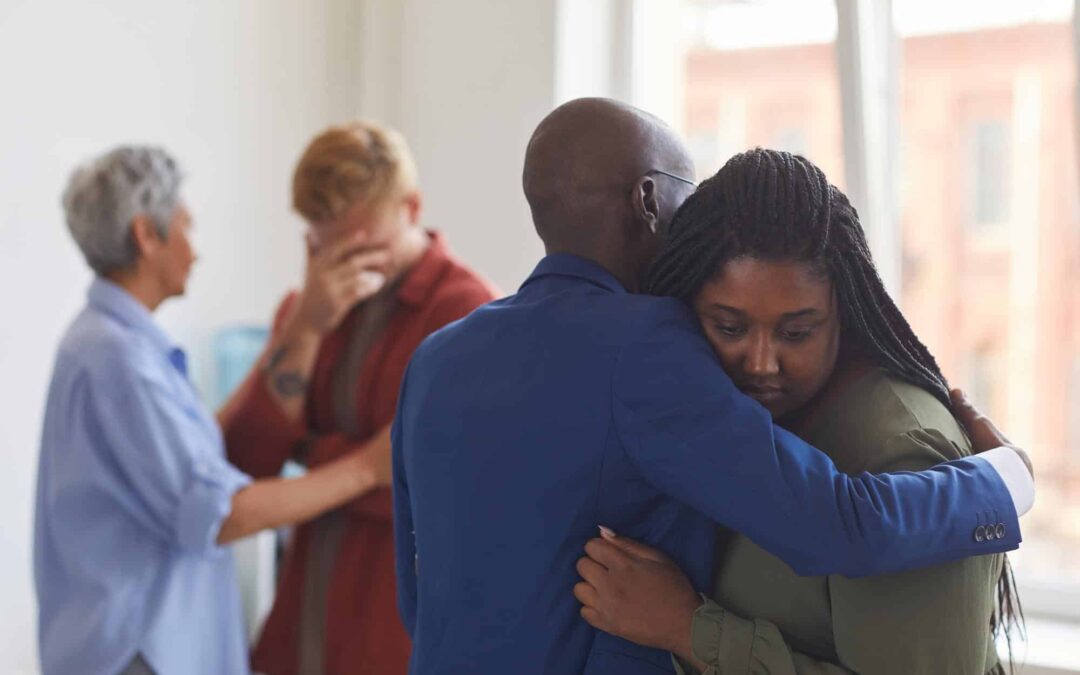Codependency in relationships is a complex dynamic that can leave individuals feeling trapped, drained, and unfulfilled. It often stems from a desire to help or fix a loved one, but it can lead to unhealthy patterns of behavior and a loss of personal identity. If you suspect that codependency might be affecting your relationship, understanding the signs, symptoms, and solutions is crucial for fostering a healthier bond.
What is Codependency in Relationships?
Codependency is a behavioral condition in which one person enables another person’s self-destructive tendencies, such as addiction, poor mental health, immaturity, irresponsibility, or under-achievement. The codependent person, often driven by a need for control and a fear of abandonment, may prioritize the needs of others at the expense of their own well-being. This can lead to a cycle of unhealthy behaviors that can damage both individuals involved.
Recognizing the Signs of Codependency
Codependency can manifest in various ways, and recognizing the signs is the first step towards healing. Here are some common indicators of codependency in relationships:
- Low Self-Esteem: Codependent individuals often struggle with low self-worth and may rely on external validation from their partner.
- People-Pleasing: A strong need to please others, even at the cost of personal happiness, is a hallmark of codependency.
- Difficulty Setting Boundaries: Codependents may find it challenging to say “no” and may sacrifice their own needs to avoid conflict or disapproval.
- Caretaking to the Extreme: An excessive focus on caretaking, even when it’s detrimental to one’s own well-being, is a common trait.
- Controlling Behaviors: Attempts to control a partner’s behavior through manipulation, guilt, or excessive worry are often present.
- Fear of Abandonment: The fear of being alone or rejected can drive codependent individuals to tolerate unhealthy behaviors in their partner.
- Difficulty with Intimacy: Codependency can hinder emotional intimacy, as the focus shifts from genuine connection to fixing or rescuing the partner.
The Impact of Codependency on Relationships
Codependency can have a profound negative impact on both individuals in a relationship. It can erode trust, create resentment, and lead to emotional and physical exhaustion. Codependent relationships often lack healthy boundaries and mutual respect, making it difficult for both partners to thrive and grow.
Solutions for Healing Codependency
Breaking free from codependency requires courage, self-awareness, and a commitment to change. Here are some strategies that can help individuals heal from codependency in relationships:
- Seek Professional Help: Therapy, whether individual or couples counseling, is often essential for understanding the root causes of codependency and developing healthier coping mechanisms. (See Resolute Recovery’s Therapy Programs)
- Set Boundaries: Learn to say “no” and prioritize your own needs. Establishing healthy boundaries is crucial for reclaiming your autonomy.
- Focus on Self-Care: Engage in activities that nurture your physical, emotional, and mental well-being. Self-care is not selfish; it’s essential for healthy relationships.
- Build a Support System: Surround yourself with supportive friends and family who understand your journey. Consider joining a support group for codependents.
- Practice Self-Compassion: Be kind to yourself as you navigate the healing process. Acknowledge your strengths and celebrate your progress.
- Challenge Negative Thoughts: Replace self-defeating thoughts with positive affirmations. Build self-esteem and confidence.
- Learn Healthy Communication: Develop effective communication skills that promote understanding and respect in your relationships.
Codependency Recovery: A Path to Freedom
Overcoming codependency is a journey, not a destination. It takes time, effort, and support. However, with the right resources and strategies, you can break free from the cycle of codependency and build healthier, more fulfilling relationships. If you recognize the signs of codependency in your own relationship, don’t hesitate to seek help. Resolute Recovery is here to support you on your path to healing and healthier connections.
Internal Links:





